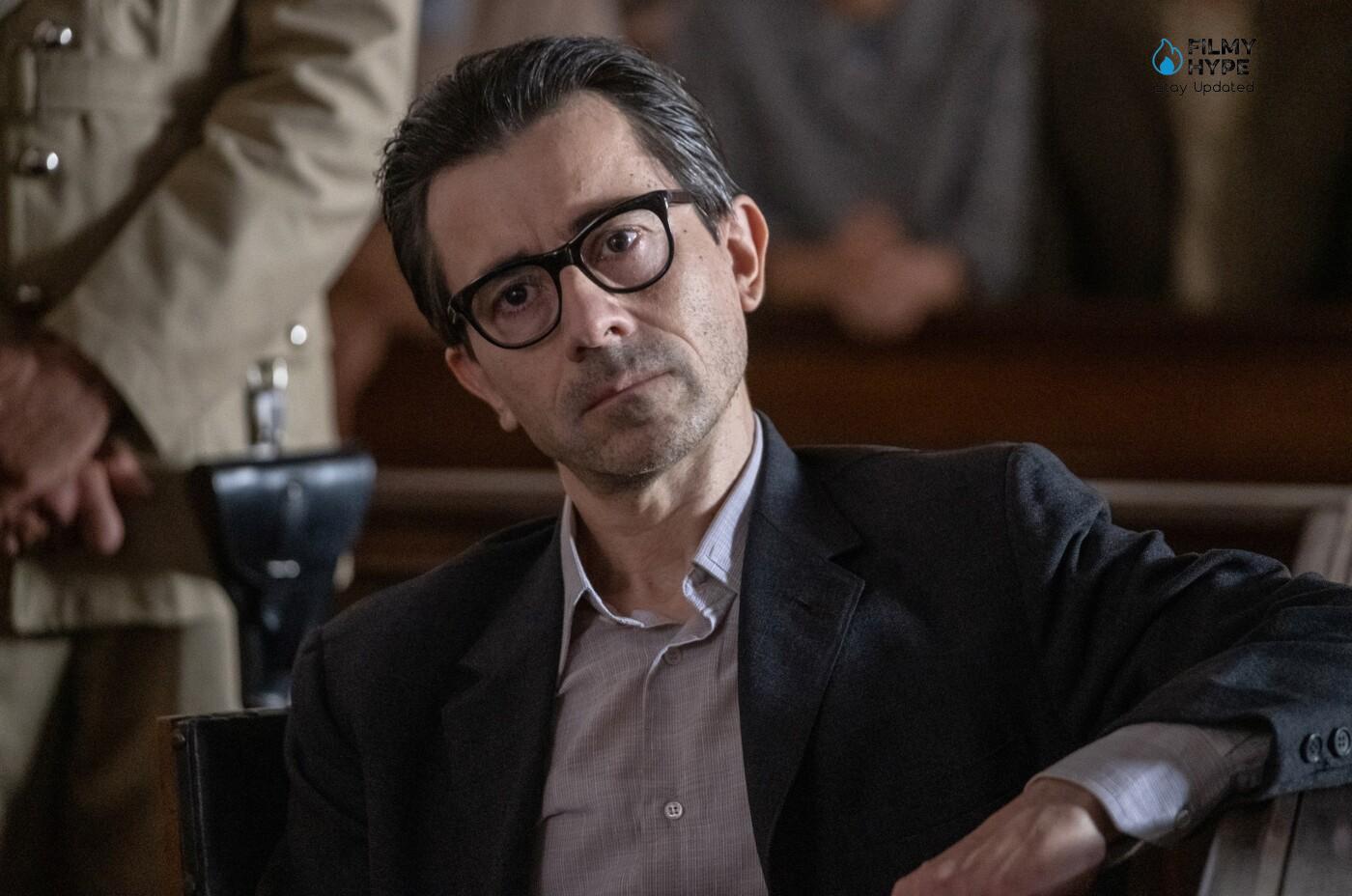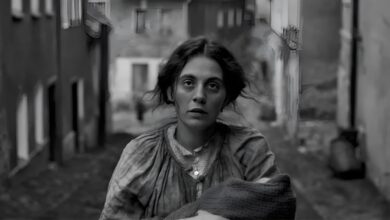The Lord Of The Ants Review: Elio Germano Is A Certainty, Leonardo Maltese A Surprise! (Venice 79)
Cast: Luigi Lo Cascio, Elio Germano, Sara Serraiocco
Director: Gianni Amelio
Filmyhype.com Ratings: 3.5/5 (three and a half star)
The Lord of The Ants Review: Can a true story that took place in Italy more than fifty years ago be a representation of a frightening contemporaneity? Looking at the new film by Gianni Amelio, presented in competition at the Venice International Film Festival 2022, one cannot help but feel a painful thrill in noting how, even today, a story like that of Aldo Braibanti does not belong to a time that we can define forgotten. In this painful cave, we begin our review of The Lord of the Ants, starring Luigi Lo Cascio as the poet and playwright.

Myrmecology experts know that the industrious insects we find everywhere have two stomachs, one for themselves and the other intended for sharing with the rest of the colony (called this “social stomach”). The Lord Of The Ants, the film by Gianni Amelio in competition at the 79th Venice International Film Festival, has this same philosophy woven under the skin since it is an artistic exploit of its author and civil teaching at the same time. It is a love poem capable of whispering anger among the cumbersome plots of a bigoted society, which is a mirror of the Italian 60s, which is a mirror of all cultural restrictions, which is the result of a country that has never really gone forward, remaining deeply “backward mean criminal”.
The Lord Of The Ants Review: The Story
We are in Italy, in Emilia Romagna in 1959, and Aldo Braibanti, poet and playwright with a passion for ants, establishes an intellectual and then loving relationship with the young Ettore, eighteen, brother of a pupil of Aldo, who is fascinated by the culture of man. A Culture that does not stop at literature, but also expands to myrmecology, or the science that studies ants. Ettore’s love for Aldo is so sincere and unconditional that he decides to move to Rome with him, without saying anything to his family. It will be the young man’s family, a few years later, in 1965, to have Braibanti arrested on charges of plagiarism against the boy, who will be locked up in a psychiatric hospital and subjected to electroshock.
It will be the beginning of a process in which judges, citizens and lawyers will condemn homosexual love and the Marxist political ideas of Braibanti, who can only submit to collective thought. Only a journalist from the Unit, played by Elio Germano, seems to feel empathy and understanding for the story. This true story (whose final captions summarize the consequences of this historical event) thus becomes a shining example of an Italy anchored to fascist laws, closed in its distorted idea of normality, which does not defend the freedom of the individual citizen, but only an outdated view. Because the “different” is always scary.
The Lord Of The Ants Review and Analysis
Despite the strength of the story told, The Lord of the Ants seems to address, with his dry style and very attentive to the use of words and dialogues (sometimes at the expense of images, we’ll talk about it shortly) to a type of audience who will find, in the story of Braibanti, only confirmation of his own political and social ideas. The film itself seems aware that it is intended for a type of audience close to Amelio’s sensibility, renouncing a dialogue between factions, but rather making a mockery of, in the best moments through brilliant use of testimony in the courtroom, those who keep silent protagonist of being a monster. Consequently, not only are the characters Manichean in their position, but the film does not stimulate a contrary voice that can even further enhance his right and sacrosanct thesis.
In this very dry and direct representation of the events, through clear and sometimes didactic dialogues, the visual component is sacrificed, with the use of environments and scenographies that intend to recall the Sixties but are unable to breathe the atmosphere. The feeling, often alienating, is that of being in contemporary sets with costumes of the time. It is a choice that could be desired in such a way as to amplify that link between the past and present of our country, even if it would have been necessary to place a greater emphasis.
The cast of Lord of the Ants appears to be broken in half. Luigi Lo Cascio manages to best represent the character of Aldo Braibanti, working on subtraction and carefully dosing emotions and expressions. The result, at the end of the film, is that of having witnessed a truly human and three-dimensional portrait. Elio Germano, in the role of the journalist Marcello, strengthens himself with a chameleonic interpretation of what is the best character in the film. He pays duty on the timing and the importance of the journalist towards the plot, but every time he appears he steals the show from the supporting actors.
Supporters who fail to stand out as they should, either for some dialogues in the script that are a bit too artificial or for the comparison with talents of the caliber of Lo Cascio and Germano. If Leonardo Maltese’s Hector does not fully convince in the use of the word, it is interesting how the young actor works through the face and body, a choice that makes him attentive and effective. In one scene of the film it is said that the ants have two stomachs: one for themselves, and one for the community. Amelio’s film reproduces this dual function. It is a film about a single individual, but which represents many; it is a juridical process but also a story that reflects on love and the freedom to love; it is a film in which an intimate and personal dimension of the director is perceived, but which manages to transform itself into a universal story. Above all, it is an account of a story that is both over and still in progress.
Luan Amelio Ujkaj’s photography evokes, thanks to the perfect amalgam of earthy and dark colors, alternating with images of shining features, the whole desert that disrupts the thoughts of the protagonists. And the mechanical eye of the camera rests, like a butterfly, on the edge of the abyss that makes its way into the gaze of each component of the story, in their turned backs, unaware of love, in the frenzied splendor of those who savor freedom to be, but limitedly in the four walls of a villa. The lord of the ants portrays the Bel Paese passing through the narrow corridor of a homosexual relationship and embeds shame, contempt, and the treatment that is reserved for those who have that “devil” in their head.
The electroshock that Ettore undergoes is the barbarism necessary to purge him of all evil and to hurt is not so much that scene in which he writhes helplessly, but the mother’s conviction that that gesture is love. It is also there then that the split emerges that dissociates intelligence from ignorance: the concept of good is filtered without forcing, reaching the viewer as a caress and with extreme naturalness. What is the fault and who would be the culprits? In a normal country, there would be no fault but, Braibanti knows this, although the Italian people of the 60s are already moving towards change, the bureaucracy remains immobile in its formulas, stuck in a deadly device that at times struggles to unlock again now.
Gianni Amelio’s work, like a car, swiftly crosses the highway of drama, but he does not forget to sneak into country lanes full of sweetness, in gorges of genuine hilarity, curtains that snatch a sincere bitter laugh capable of overturning in reflections on ourselves and our society. In doing so, the author pays homage to the Emilian intellectual but democratically accuses all useless bigotry, and all forms of psychological, physical and verbal violence.
The Lord Of The Ants Review: The Last Words
The Lord Of The Ants carries one crumb at a time, the love towards love, splitting the attraction sentimentally and intellectually and triggering the spring of curiosity towards what we have been, are and will be. He does not judge, he does not exceed, he simply tells, he instructs. And he does it very well! The lord of the ants finds his strength in the interpretations of Luigi Lo Cascio and Elio Germano. The story of Aldo Braibanti belongs to the past as much as to the present, but Gianni Amelio’s film prefers an all too dry style that does not involve as much as it could.







